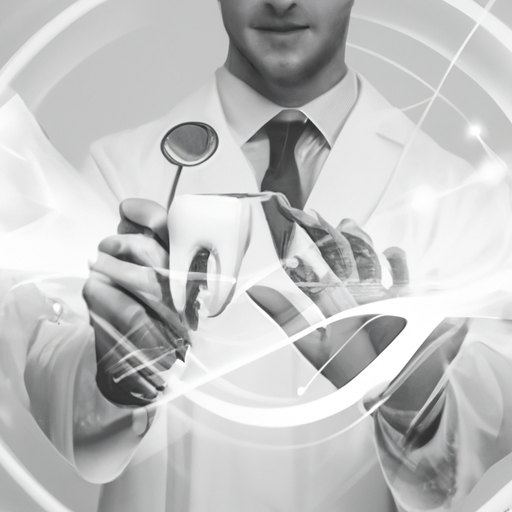In the realm of dentistry, staying up-to-date with the latest advancements in diagnosis and treatment is paramount. As technology and techniques evolve, so too must the skills and knowledge of dental professionals. This article delves into the significance of professional development in dentistry, exploring how it enhances diagnosis and treatment. We will delve into the impact of continuous learning on identifying symptoms and causes, and how it unlocks new techniques and advancements in dental practices. By embracing ongoing education, dentists can ensure they provide the best possible care to their patients while staying at the forefront of their field.
1. "The Importance of Professional Development in Dentistry: Enhancing Diagnosis and Treatment"
In the field of dentistry, professional development plays a crucial role in enhancing diagnosis and treatment procedures. Continuous learning and staying updated with the latest advancements are essential for dental professionals to provide the best possible care to their patients.
One of the primary reasons why professional development is of utmost importance in dentistry is that it allows dentists to sharpen their diagnostic skills. By attending workshops, conferences, and seminars, dentists can learn about new techniques, technologies, and research findings that can aid in accurately diagnosing dental issues. For instance, advancements in imaging technologies, such as cone beam computed tomography (CBCT), have revolutionized the way dentists visualize and analyze dental problems. By staying updated with these developments, dentists can enhance their ability to identify and diagnose various dental conditions with precision.
Moreover, professional development also enables dentists to improve their treatment approaches. As new research and studies emerge, treatment protocols and techniques evolve accordingly. By actively engaging in professional development opportunities, dentists can stay informed about the latest treatment modalities and incorporate them into their practice. This ensures that patients receive the most effective and efficient treatments available.
Additionally, professional development aids dentists in understanding the symptoms and causes of dental conditions, enabling them to provide comprehensive care. Dental diseases and conditions can manifest in various ways, and staying updated with the latest research
2. "Identifying Symptoms and Causes: How Professional Development Impacts Dental Practices"
Professional development plays a crucial role in shaping the success and growth of dental practices. It involves continuous learning, acquiring new skills, and staying updated with the latest advancements in the field of dentistry. By identifying symptoms and causes related to professional development, we can understand how it directly impacts dental practices.
One of the key symptoms that indicate the need for professional development in dentistry is the lack of knowledge and skills required to provide the best possible care to patients. As the field of dentistry evolves, new treatment techniques, technologies, and research findings emerge. Dentists who fail to keep up with these changes may find themselves falling behind their peers and being unable to provide the highest standard of care. Therefore, it is essential for dental professionals to stay updated through professional development programs, conferences, workshops, and continuing education courses.
Another symptom that highlights the importance of professional development is the inability to diagnose complex dental conditions accurately. Dentistry is a constantly evolving field, with new diseases, conditions, and treatment methods being discovered regularly. Dentists who do not actively engage in professional development may miss out on the opportunity to learn about these conditions or refine their diagnostic skills. This can lead to misdiagnosis or delayed treatment, negatively impacting patient outcomes.
Furthermore, the cause behind the need for professional development in dentistry lies in the rapid advancements in technology
3. "Continuing Education for Dentists: Unlocking New Techniques and Advancements in Diagnosis and Treatment"
Continuing Education for Dentists: Unlocking New Techniques and Advancements in Diagnosis and Treatment
In the rapidly evolving field of dentistry, keeping up with the latest techniques and advancements is crucial for providing optimal patient care. Continuing education plays a vital role in the professional development of dentists, enabling them to unlock new techniques and stay abreast of the latest trends in diagnosis and treatment.
One of the primary reasons why continuing education is essential for dentists is the constant evolution of dental technology. As new tools and equipment are introduced, dentists must familiarize themselves with their functionalities and learn how to incorporate them into their practice. By attending continuing education courses, dentists can gain hands-on experience with cutting-edge technology, such as digital imaging systems or CAD/CAM technology, which allow for more accurate diagnosis and efficient treatment planning.
Moreover, continuing education provides dentists with an opportunity to learn about advancements in diagnostic techniques. Dentistry has seen significant progress in the field of imaging, with the introduction of cone-beam computed tomography (CBCT) and three-dimensional imaging. These innovative diagnostic tools allow dentists to visualize the oral structures with greater precision, aiding in the early detection of dental diseases and improving treatment outcomes. By staying updated on the latest diagnostic techniques through continuing education, dentists can effectively incorporate these advancements into their practice and

